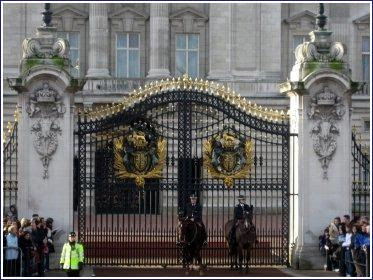In addition, all seminaries will be required to teach trainee priests how to say the old Mass so that they can celebrate it in all parishes.
Catholic congregations throughout the world will receive special instruction on how to appreciate the old services, formerly known as the Tridentine Rite.
Yesterday’s announcement by the senior Vatican cardinal in charge of Latin liturgy, Cardinal Dario Castrillon Hoyos, speaking on behalf of Pope Benedict XVI, will horrify Catholic liberals, including many bishops of England and Wales.
The Pope upset the liberals last year when he issued a decree removing their power to block the celebration of the old Mass. Yesterday’s move demonstrates that the Vatican intends to go much further in promoting the ancient liturgy.
Asked whether the Latin Mass would be celebrated in many ordinary parishes in future, Cardinal Castrillon said: “Not many parishes – all parishes. The Holy Father is offering this not only for the few groups who demand it, but so that everybody knows this way of celebrating the Eucharist.”
The Cardinal, who heads the Pontifical Commission Ecclesia Dei, made his comments as he was preparing to celebrate a traditional Latin Mass at Westminster Cathedral yesterday, the first time a cardinal has done so there for 40 years.
In the traditional rite, the priest faces in the same direction as the people and reads the main prayer of the Mass in Latin, in a voice so low as to be virtually silent. By contrast, in the new rite the priest faces the people and speaks audibly in the local language.
Cardinal Castrillon said that the reverent silence of the traditional rite was one of the “treasures” that Catholics would rediscover, and young worshippers would encounter for the first time.
Pope Benedict will reintroduce the old rite – which will be known as the “Gregorian Rite” - even where the congregation has not asked for it. “People don’t know about it, and therefore they don’t ask for it,” the Cardinal explained.
The revised Mass, adopted in 1970 after the Second Vatican Council, had given rise to “many, many, many abuses”, the Cardinal said. He added: “The experience of the last 40 years has not always been so good. Many people have lost their sense of adoration for God, and these abuses mean that many children do not know how to be in the presence of God.”
However, the new rite will not disappear; the Pope wishes to see the two forms of Mass existing side by side.
Such sweeping liturgical changes are certain to cause intense controversy. At a press conference, a journalist from the liberal Tablet magazine, which is close to the English bishops, told the Cardinal that the new liturgical changes amounted to “going backwards”.
Following last year’s papal decree, liberal bishops in England and America have attempted to limit the takeup of the old Mass by arguing that the rules say it should only be reintroduced when a “stable group” of the faithful request it. But Cardinal Castrillon said that a stable group could consist of as few as three people, and they need not come from the same parish.
The changes will take a few years to implement fully, he added, just as the Second Vatican Council had taken a long time to absorb. He insisted that the widespread reintroduction of the old Mass did not contradict the teachings of the Council.

















